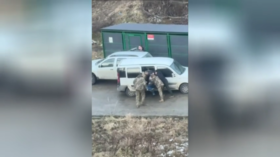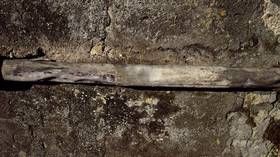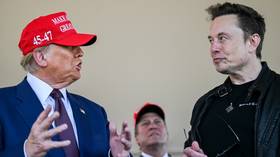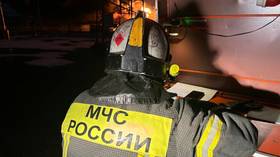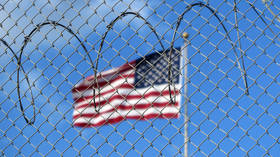Prime Ministers put on smiles to fend off new gas dispute
This New Year’s Eve will not be clouded by gas cuts, says an optimistic Vladimir Putin after meeting with Ukrainian counterpart Yulia Timoshenko in Yalta on Thursday.
Stiff smiles and strained relations. The Prime ministers of Russia and Ukraine met in Yalta for talks on gas cooperation – something which has been hard to come by recently.
There will be no sanctions imposed on Ukraine due to the new, lower volumes for the year 2010. Also all the discounts that both sides enjoyed this year will be cancelled, according to Vladimir Putin.
“We agreed on this right away and informed everyone about this – Ukraine kept last year’s level of gas transit and we made a 20% discount, from the European gas price. Next year there will be no discounts and no benefits for gas transits. The price for the gas transit will be more than the gas price itself”.
But ever the diplomat, Yulia Timoshenko explains Russia and Ukraine have no disagreements. Everything, she says, is proceeding according to the contract signed in January 2009, which sets the volumes and transit conditions.
“This year we reached a long-term contract on Russian gas supplies to Ukraine and to Europe via Ukraine until the year 2019. It was a breakthrough in our relations in the gas sector and both countries are complying with that agreement. It is very important that Russia, as the stronger country, is making concessions for Ukraine and bears in mind the crisis situation”.
Ukraine’s President Victor Yushchenko disagrees. In a letter to Dmitry Medvedev he complains that Ukraine is struggling with paying high prices for gas, while only getting a small sum in transit fees.
Ukraine’s political climate may be about to change with January's Presidential election. But, for the time being, Yushchenko is doing his best to make the gas transit issue a key issue in the battle for votes.
From the new year, transit fees are due to be calculated according to a new formula, which both sides have long since agreed to. Aleksandr Morozov – HSBC, chief economist says this makes it a political football in Ukraine.
“According to the formula based on the past levels of gas there are likely to see a hike in gas transit fees. The difference will be 50-60%. As far as Prime Minister's office is concerned, they are quite happy with what's written in the contract – indeed it's a pretty high hike in gas transit fees, they will receive extra money from Gazprom. But there is dissatisfaction from the Presidents office”.
Europe is currently buying Russian gas under long term contracts at a much higher price than the spot market or LNG.
Demand has fallen due to the crisis, creating unfavourable market conditions for energy suppliers. It perhaps stands to reason then, it's in Ukraine and Russia's interest to provide their customers with uninterrupted supplies, so as not to provide Europe with any further incentive to look elsewhere.


